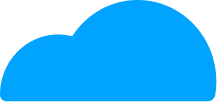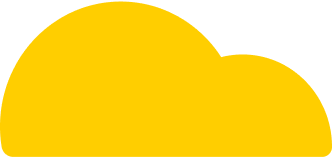The Science of Burnout
From The Wake Up: Learn how to spot the signs of burnout and actively prevent it to bring your refreshed self to work.
Try 14 days freeBetter mental health starts with Headspace. Unrivaled expertise to make life feel a little easier, using guided meditations, mindfulness tips, focus tools, sleep support, and dedicated programs.
Try 14 days free
Hi, and to welcome to The Wake Up. I'm Dr. Sahar Yousef. I'm a cognitive neuroscientist, and a professor at UC Berkeley's Haas School of Business. Today, I'll be talking about how burnout uniquely impacts the brain and the body, and why it's such a prevalent modern challenge. I'll teach you how to spot the signs, as well as ways you can actively prevent burnout, so you can bring your refreshed self to work, and feel more present in your everyday life. Let's dive right in. (soft music) Burnout is a very real condition that can cause immense mental and physiological damage, so much so that in 2019, the World Health Organization decided to officially include burnout as an occupational syndrome. So what exactly is burnout? In the 1970s, UC Berkeley Psychology Professor, Dr. Christina Maslach, popularized the term by studying healthcare and service workers. Burnout, she said, consists of three core elements. One, profound emotional exhaustion. Two, generalized negativity, also called cynicism, and three, feelings of professional inefficacy, not actual professional inefficacy, but feelings of it. Let's say you decide that something is in fact stressful, whether it's an approaching deadline, or an email from your boss, your amygdala gets activated. The amygdala is a walnut-sized area in the center of the human brain that's considered the fear and anxiety center. We all have an amygdala, this panic alarm that goes off when you need to fight, flee, or deal with a threat. That's how we've traditionally experienced stress in what are called short and complete cycles. We panic, and then calm down. Now think about what modern day stressors look like for us. You might wake up in the morning, and the first thing that you see is an email from your manager, but you don't have time to deal with it, because you have to jump into your first meeting. And in that meeting, you get delegated a task you didn't anticipate, and you can't get to it, because now you have to go on to your next meeting. Little by little, you accumulate these upticks in cortisol throughout the day, which is why burnout is like death by a thousand paper cuts. These uncompleted stress cycles just continue to accumulate for days and weeks on end. So is burnout reversible? Thankfully, yes, but it can take months to undo. Here's how you can get started. A highly effective research-backed framework for avoiding burnout is called the 3M Framework. It involves actively taking three types of breaks. Macro breaks, meso breaks, and micro breaks, in order to fully disengage from work stress, and restore your energy. First, is macro breaks, which means every month, you need to be taking a half to a full day off. Second is meso breaks, which is taking one to two hours off every week. And lastly, micro breaks, or resting for a few minutes several times every day. And when I say break, I'm not talking about just kicking back, and...
Details
About your teachers
 Andy PuddicomeHeadspace Co-founderMore about Andy
Andy PuddicomeHeadspace Co-founderMore about AndyA former Buddhist monk, Andy has guided people in meditation and mindfulness for 20 years. In his mission to make these practices accessible to all, he co-created the Headspace app in 2010.
 Eve Lewis PrietoHeadspace Director of MeditationMore about Eve
Eve Lewis PrietoHeadspace Director of MeditationMore about EveEve is a mindfulness teacher, overseeing Headspace’s meditation curriculum. She is passionate about sharing meditation to help others feel less stressed and experience more compassion in their lives.
 Dora KamauMeditation TeacherMore about Dora
Dora KamauMeditation TeacherMore about DoraAs a meditation teacher, Dora encourages others to live, breathe, and be with the fullness of their experiences. She loves meditation’s power to create community and bring clarity to people’s minds.
 Kessonga GiscombeMeditation TeacherMore about Kessonga
Kessonga GiscombeMeditation TeacherMore about KessongaKessonga has been an acupuncturists, therapist, and meditation teacher, working to bring mindfulness to the diverse populations of the world.
 Rosie AcostaMeditation TeacherMore about Rosie
Rosie AcostaMeditation TeacherMore about RosieRosie Acosta has studied yoga and mindfulness for more than 20 years and taught for over a decade. Rosie’s mission is to help others overcome adversity and experience radical love.

Your lifelong guide to better mental health
Stress, sleep, and all the challenging emotions — care for your mind with the everyday mental health app that's shown to make a difference.
Try 14 days free
Look after your mind
Proven guided meditations and programs to help you stress less, sleep more soundly, and better navigate life’s challenges

Science-backed
Studies show that using Headspace for 30 days can reduce stress, increase resilience, and improve overall well-being

Explore 1000+ expert-led exercises
Access our library of meditations, breathing exercises, and guidance videos for stress, sleep, focus, everyday anxiety , parenting, and more.




Members are enjoying happier and healthier lives
- © 2026 Headspace Inc.
- Terms & conditions
- Privacy policy
- Consumer Health Data
- Your privacy choices
- CA Privacy Notice


